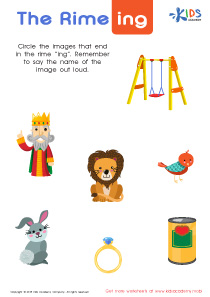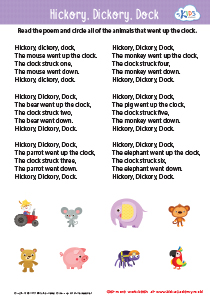Vocabulary enhancement Extra Challenge Building Vocabulary Worksheets for Ages 3-4
5 filtered results
-
From - To
Enhance your child's vocabulary with our engaging Vocabulary Enhancement Extra Challenge Building Vocabulary Worksheets designed specifically for ages 3-4! These thoughtfully crafted worksheets combine fun activities and word exercises, encouraging young learners to explore new words and improve their language skills. Early vocabulary development is crucial for literacy growth, and our resources promote language acquisition through interactive challenges. Each worksheet features colorful illustrations designed to capture your child’s imagination while fostering learning. Perfect for parents and educators, these extra challenges ensure your little ones develop a strong foundation in vocabulary, preparing them for future reading success. Download and watch their confidence soar!
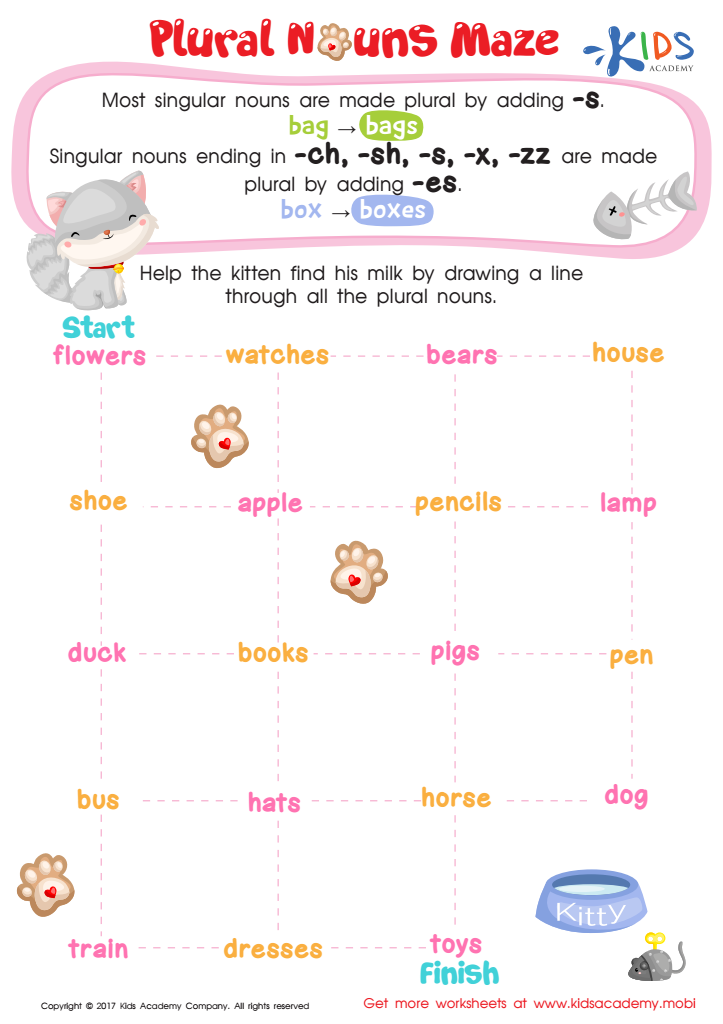

Plural Nouns Maze Worksheet
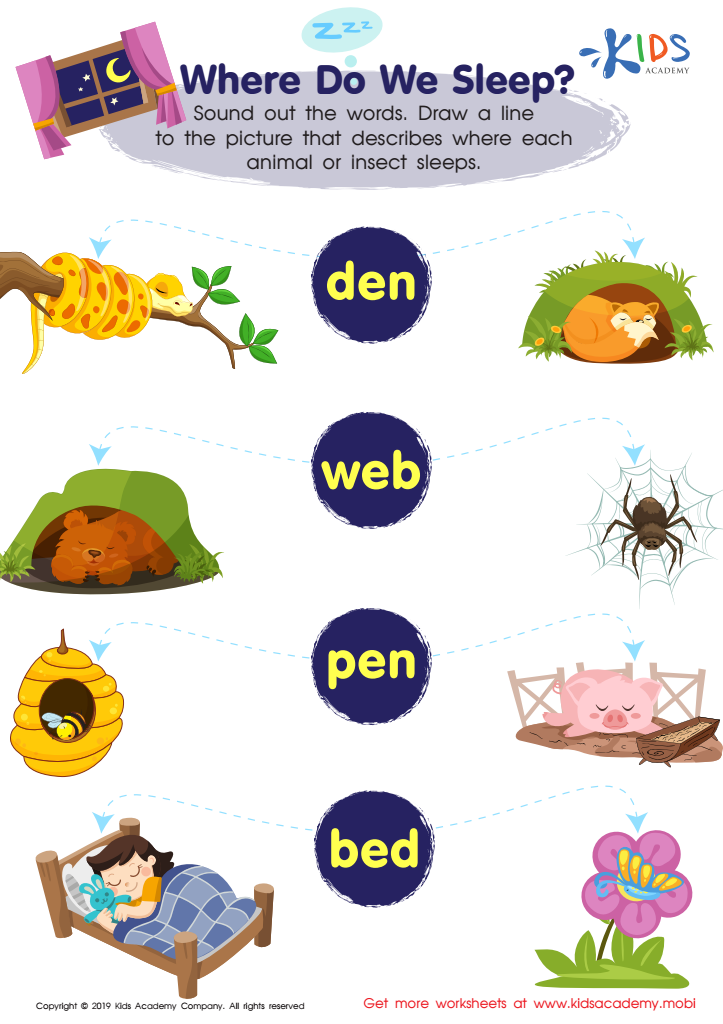

Where Do We Sleep Worksheet
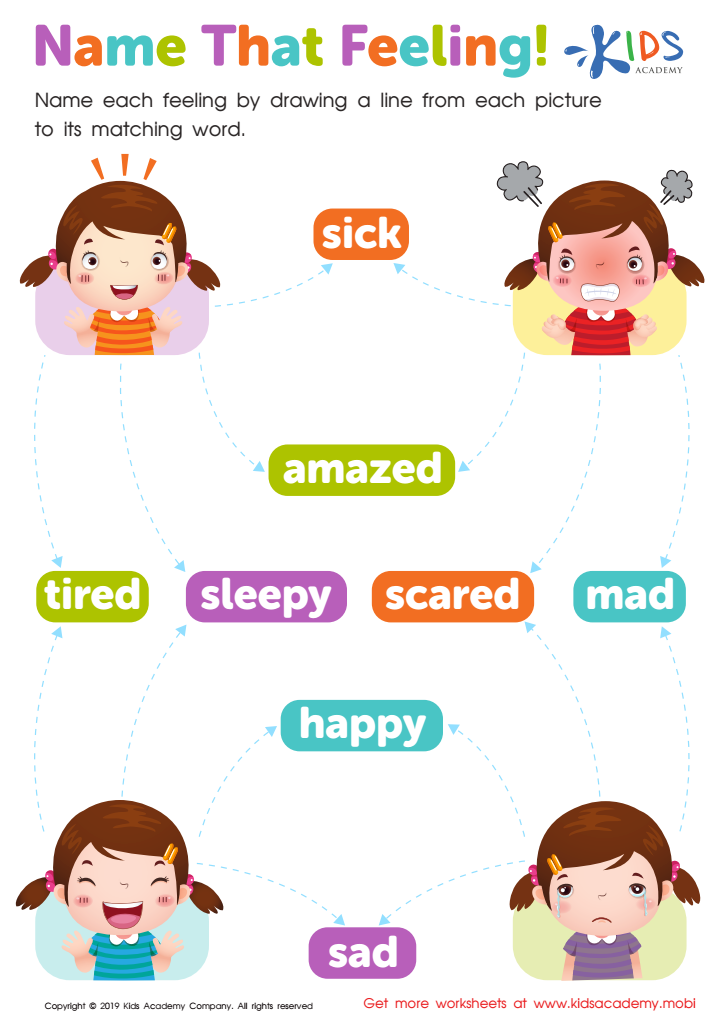

Name that Feeling Worksheet
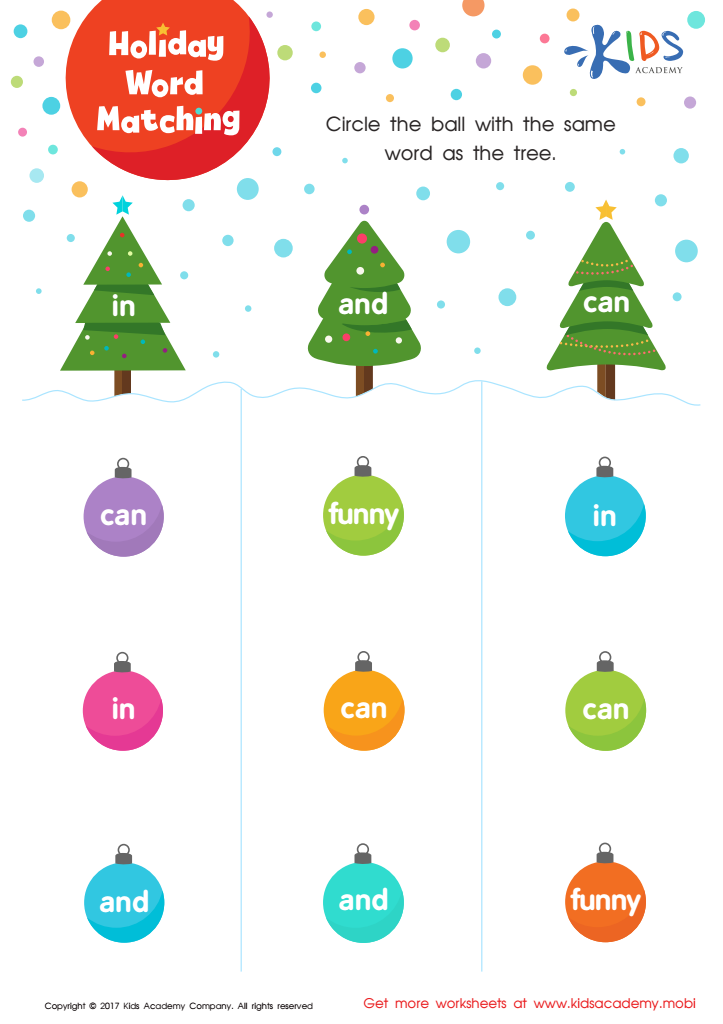

Holiday Word Matching Worksheet
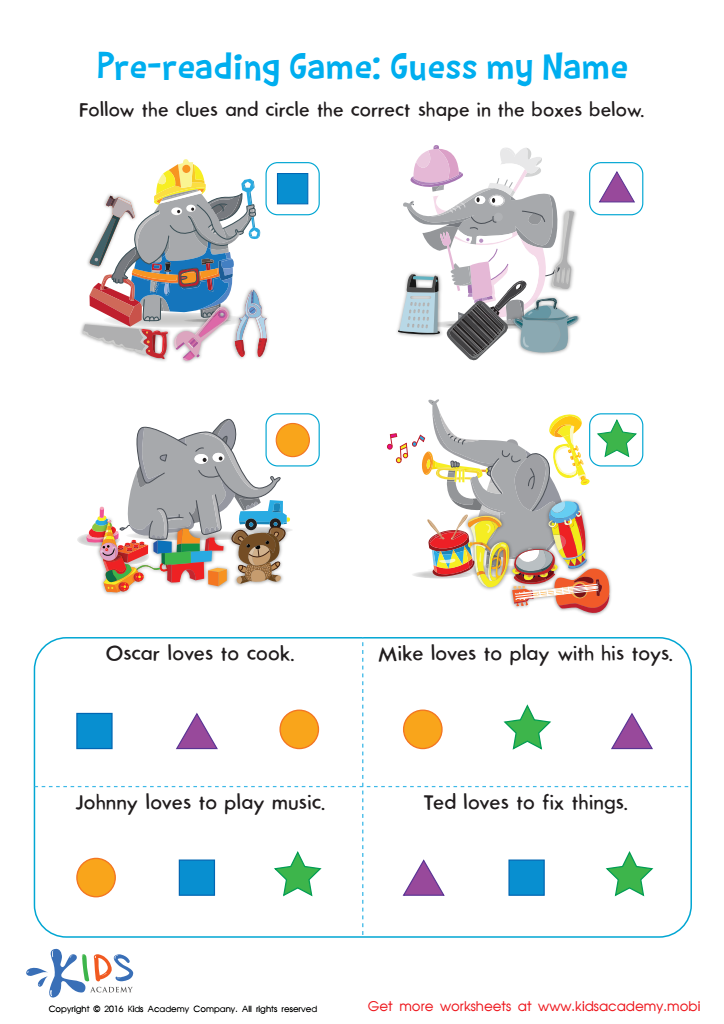

Pre Reading Worksheet Guess My Name
Children aged 3-4 experience immense brain development, making this an ideal time for vocabulary enhancement. Parents and teachers should prioritize building vocabulary during these formative years because it lays a foundation for effective communication, literacy skills, and overall cognitive development. A rich vocabulary enhances children's ability to express their thoughts and emotions, fostering confident interactions and academic readiness.
Moreover, vocabulary development is closely linked to early reading skills. Children exposed to diverse words are more likely to understand language patterns and engage with books, promoting literacy as they transition into more structured learning environments. Additionally, enhanced vocabulary helps in social interactions, as children learn to articulate their needs, emotions, and ideas, leading to improved relationships with peers and adults.
Educational activities aimed at vocabulary enhancement, like storytelling, singing, or interactive play, stimulate a child's curiosity and love for language. When parents and teachers actively engage in vocabulary-building exercises, they create a supportive environment that nurtures lifelong learning. By focusing on vocabulary development at ages 3-4, adults play a pivotal role in empowering children, leading to academic success and strong communication skills well into the future.

 Assign to My Students
Assign to My Students



















